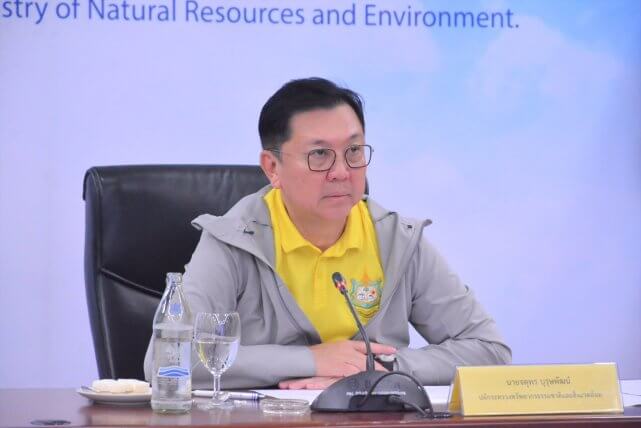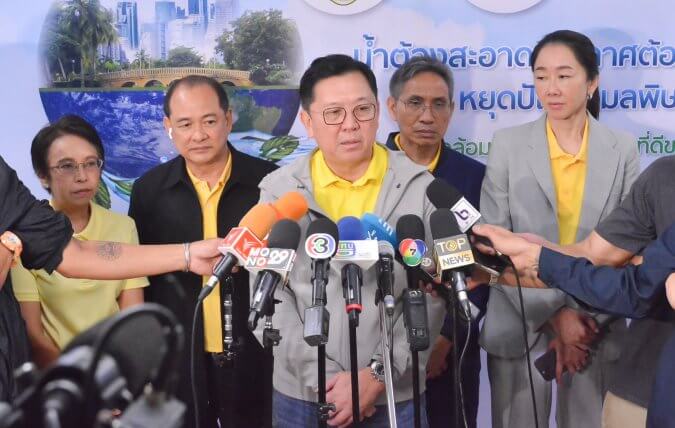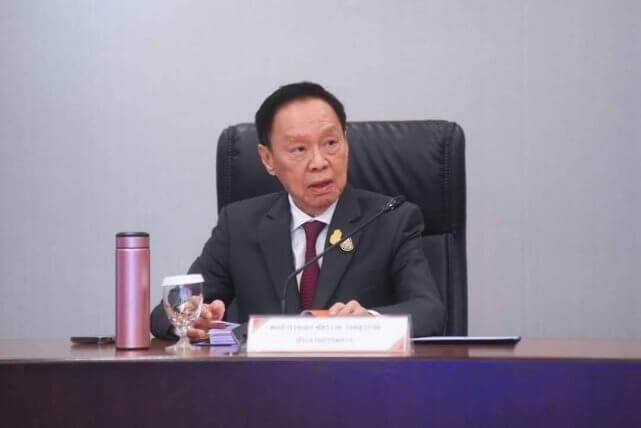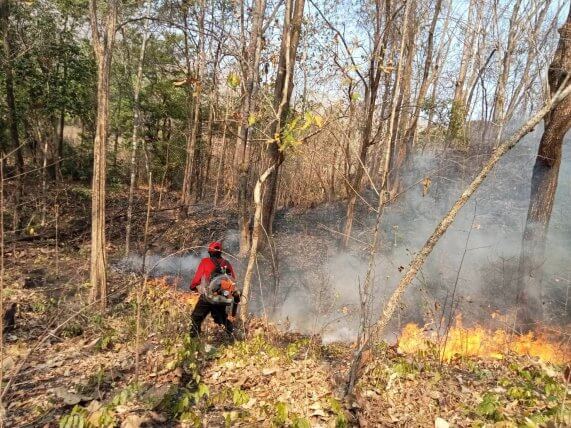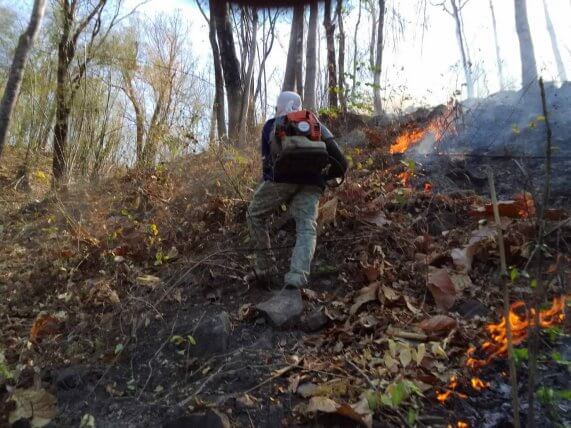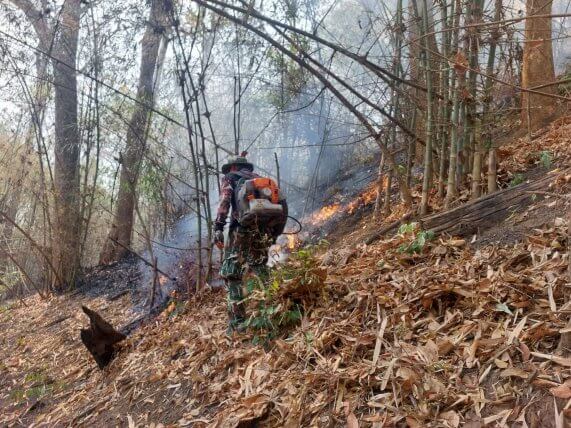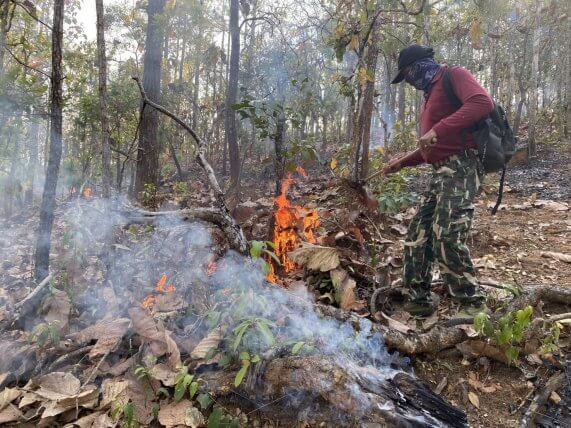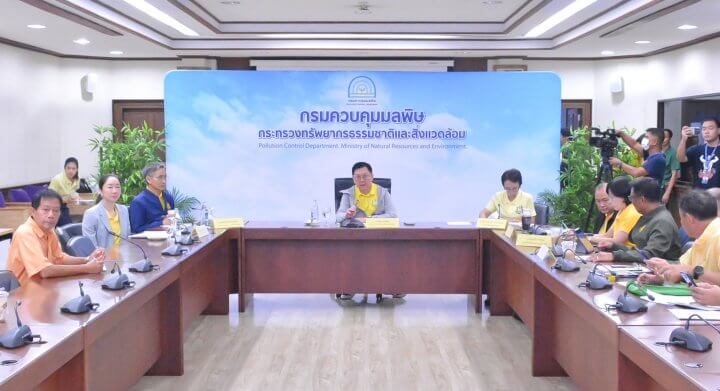
On March 10, 2024, Pol. Gen. Patcharawat Wongsuwan, Deputy Prime Minister and Minister of Natural Resources and Environment, held the meeting with forestry agencies and 17 northern provinces to 1) order the enhancement of strict measures, 2) adjust the format for organizing forces to extinguish forest fires, 3) “close the forest” to prohibit people from entering protected forests and national reserved forests in areas of violent situations, 4) strictly enforce the law against offenders, and 5) emphasize all agencies to operate with “accuracy, speed, prompt, and efficiency”
Pol. Gen. Patcharawat said that as the forest fire situation has become more serious, every agency must urgently implement measures to solve the PM2.5 problem during crises, especially in the targeted areas, including 11 protected forests, 10 reserved forests, and repeatedly burned agricultural areas in the highlands and plains of 17 northern provinces, as follows:
1. Adjust the pattern of organizing forces to extinguish forest fires with a combination of tactics:
1) fixing the area with surveillance points and patrols 2) sending forces and extinguishing fires by aircraft to reach the fire quickly and control it from spreading widely and 3) having a war room command the forest fire extinguishing operations team at all times when entering the area.
2. Follow up on the hot spot situation by joining forces from the military, administration, and network (both ground and aircraft levels) to patrol and monitor intensively. When hot spots are found, operations must be accelerated to control the situation immediately, but priority must be given to the safety of personnel by refraining from using untrained volunteers to avoid casualties.
3. Support and integrate work with the provincial operations center that the provincial governor is the center of command.
4. “Close the forest” by prohibiting people from entering protected forests and national reserved forests in areas of violent situations, strictly enforcing the law against offenders, and stepping up the arrest and prosecution of those who illegally set forest fires.
5. For agricultural areas, closely monitor and coordinate with the administration to reduce and control burning, or if it occurs, it must be controlled rapidly.
6. Communicate and notify the particulate matter situation thoroughly and immediately so that people can receive timely and accurate information to create knowledge and understanding among people to act according to the correct and appropriate advice.
Moreover, he emphasized that all agencies operate with “accuracy, speed, prompt, efficiency” and with safety in mind. Finally, he would like to thank everyone who has worked tirelessly for the people.
Mr. Jatuporn Buruspat, Permanent Secretary of the Ministry of Natural Resources and Environment (MNRE), said that the government has concerned about solving the particulate matter problem, which the particulate matter situation in the northern region, especially border provinces, was quite high. Part of the problem comes from neighbouring countries that have high hot spots, such as Myanmar and Cambodia, causing PM2.5 values to affect Thailand. MNRE has worked in the area 24 hours a day. On March 3, 2024, the Cabinet approved a central budget for emergencies or necessity of approximately 272 million baht to pay for the project to solve forest fires and smog problems to reduce PM2.5 through community participation, resulting in more efficient operations in the area.
Mr. Jatuporn further said that, solving the problems of forest fires, smog, and particulate matter requires cooperation with all sectors. Pol. Gen. Patcharawat had a policy to attract the private sector to join with the government sector by having BOI issue announcements granting rights and benefits to the private sectors that join in supporting forest management to reduce the PM2.5 problem sustainably. As for resolving the problem of transboundary haze pollution, discussions with neighbouring countries have been raised through the use of security mechanisms and border relations. On Friday, March 8, 2024, the meeting was held with Cambodia to establish a Hotline between the two countries and scheduled a joint workshop within April. As for Myanmar, MNRE is in the process of negotiating using the mechanism of the Commander-in-Chief level border committee.
Overall, the PM2.5 situation in Bangkok and its vicinity was within the standard criteria in every area, with most being at a good to moderate level (green/yellow). These were the results of measures to upgrade Euro 5 emissions standards, control of open burning in the central region and Bangkok, and control of particulate matter sources starting on February 19, 2024. As for the PM2.5 situation in 17 northern provinces, values exceeded the standard, with most of them at levels beginning to have an impact on health (orange). However, hourly wages were trending downward in many provinces. Provinces that still need to be monitored were Nan, Mae Hong Son, and Chiang Rai, which were at the health impact level (red). The situation was likely to subside between 10-13 March 2024, but would have to be monitored again between 14-17 March 2024 due to the wind changing direction. The winds covering the upper northern region would change to winds blowing from the west into the country again. Therefore, if the hotspot situation in the country and abroad continues to be large during this period, the situation may further intensify. In terms of fire management in forest areas, the Department of National Parks Wildlife and Plant Conservation and the Royal Forest Department, together with provinces (administration section), stepped up problem-solving, resulting in the overall reduction of hot spots by more than 40%. MNRE has already deployed forces from other regions to the northern region. After receiving the allocation of the central budget, more forces will be deployed at extraction points in the targeted areas. Emphasis was placed on creating understanding for the network, having officials work 24 hours a day, and communicating with the public about not burning forests, Mr. Jatuporn said.

